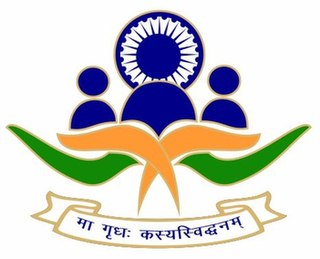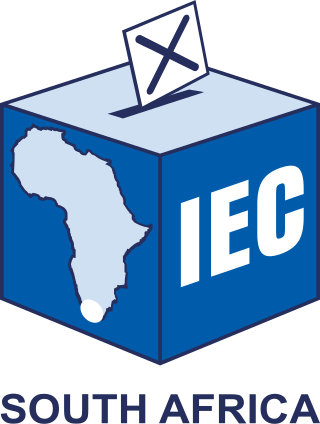 |
|---|
The Commission on Administrative Justice of Kenya also known as The Office of the Ombudsman is a government Commission established under the Commission on Administrative Justice Act 2011 pursuant to Article 59 (4) of the Constitution of Kenya. [1]
 |
|---|
The Commission on Administrative Justice of Kenya also known as The Office of the Ombudsman is a government Commission established under the Commission on Administrative Justice Act 2011 pursuant to Article 59 (4) of the Constitution of Kenya. [1]
The Key functions of the Commission are:
The current membership of the Commission on Administrative Justice is as follows: [2]
Previous Members
On 17 December 2012 the Commission wrote a letter to the Independent Electoral and Boundaries Commission (IEBC) stating that 36 Kenyans including 2 Members of Parliament, Gideon Mbuvi and Ferdinand Waititu were unfit to hold office and therefore ineligible participate in the upcoming General election. [3] Also on the list were 22 commissioners of the now defunct Electoral Commission of Kenya who were accused of mismanaging the 2007 General Election. [4]

The Australian Electoral Commission (AEC) is the independent statutory authority and agency of the Australian Government responsible for the management of federal Australian elections, by-elections and referendums.

The district magistrate, also known as the district collector or deputy commissioner, is a bureaucrat who serves as the executive head of a district's administration in India. The specific name depends on the state or union territory. Each of these posts has distinct responsibilities, and an officer can assume all of these roles at once. The district magistrate is primarily responsible for maintaining law and order, while the district collector focuses on revenue administration, and the deputy commissioner is in charge of overseeing developmental activities and coordinates government departments. Additionally, they also serve as election officers, registrar, marriage officer, licensing authority, and managing disaster responses, among other things. While the specific scope of duties may vary from state to state, they are generally similar. The district magistrate comes under the general supervision of divisional commissioner.
The Electoral Commission is an independent Crown entity set up by the New Zealand Parliament. It is responsible for the administration of parliamentary elections and referendums, promoting compliance with electoral laws, servicing the work of the Representation Commission, and the provision of advice, reports and public education on electoral matters. The commission also assists electoral agencies of other countries on a reciprocal basis with their electoral events.

The Commission on Elections, abbreviated as COMELEC, is one of the three constitutional commissions of the Philippines. Its principal role is to enforce all laws and regulations relative to the conduct of elections in the Philippines.

The Professional Regulation Commission, otherwise known as the PRC, is a three-man commission attached to Department of Labor and Employment (DOLE). Its mandate is to regulate and supervise the practice of the professionals who constitute the highly skilled manpower of the country. As the agency-in-charge of the professional sector, the PRC plays a strategic role in developing the corps of professionals for industry, commerce, governance, and the economy.
The Kenya National Commission on Human Rights (KNCHR) is an autonomous national human rights institution, established by the Kenya National Commission on Human Rights Act, 2011. It is a successor to the body of the same name established by an earlier Act of Parliament in 2002. The original KNCHR became operational in July 2003, and following the promulgation of the Constitution of Kenya in August 2010, was legally reconstituted as the Kenya National Human Rights and Equality Commission. The 2011 legislation restructured the body, assigning the equality function to a new National Gender and Equality Commission and reestablishing the name of the KNCHR.

A Lokpal is an anti-corruption authority or body of ombudsman who represents the public interest in the Republic of India. The current Chairperson of Lokpal is Pradip Kumar Mohanty. The Lokpal has jurisdiction over central government to inquire into allegations of corruption against its public functionaries and for matters connected to corruption. The Lokpal and Lokayuktas Act was passed in 2013 with amendments in parliament, following the Jan Lokpal movement led by Anna Hazare in 2010. The Lokpal is responsible for enquiring into corruption charges at the national level while the Lokayukta performs the same function at the state level. The age of Lokpal on the date of assuming office as the chairperson or a member should not be less than 45 years.

The Government of the Republic of Kenya (GoK) is the national government of the Republic of Kenya, a federal republic located in East Africa, composed of 47 Counties, each county with its own semi-autonomous governments, including the national capital of Nairobi, where the national government is primarily based.

The Bangladesh Election Commission, abbreviated and publicly referred to as EC, is an government controlled constitutional body that operates the legal functions of election laws in Bangladesh.

The Electoral Commission of South Africa is South Africa's election management body, an independent organisation established under chapter nine of the Constitution. It conducts elections to the National Assembly, provincial legislatures and municipal councils.
The Australian Capital Territory Electoral Commission, branded Elections ACT, is the agency of the Government of the Australian Capital Territory with responsibility for the conduct of elections and referendums for the unicameral ACT Legislative Assembly; the determination of electoral boundaries for the ACT; and the provision of electoral advice and services to government and on-government agencies. The responsibilities and roles of the Commission are set out in the 1992 Electoral Act and subsequent amendments.

The National Election Commission is independent constitutional institution in South Korea, established to manage free and fair elections, national referendums and other administrative affairs concerning political parties and funds. The agency was established in accordance with Article 114 of the Constitution of South Korea. The NEC has equal status as highest constitutional institution as National Assembly, the Executive Ministries, the Supreme Court and the Constitutional Court. This highly independent status of NEC reflects national will to overcome past histories such as election rigging of South Korea in 1960.
The Electoral Commission of Namibia (ECN) is an agency of the Government of Namibia. It was founded in 1992 under the Electoral Act 24 of 1992. The aim of the commission is to oversee all Namibian electoral activities starting from voter registration and political party registration, to the setting and monitoring of elections, counting of ballots and making results available.
The Truth, Justice and Reconciliation Commission of Kenya (TJRC) was established in 2008. Kenya’s modern history has been marked not only by liberation struggles but also by ethnic conflicts, semi-despotic regimes, marginalization and political violence, including the coup d'état of 1982, the Shifta War, and the 2007 Post-election violence.

The Independent Electoral and Boundaries Commission (IEBC) is an independent regulatory agency that was founded in the year 2011 through the making of the Constitution of Kenya. The Commission is responsible for conducting or supervising referendums and elections to any elective body or office established by the Constitution, and any other elections as prescribed by an Act of Parliament. It was created in a provision of the 2010 constitution and the Independent Electoral and Boundaries Commission Act. Its mandate includes "the continuous registration of voters and revision of the voter's roll, the delimitation of constituencies and wards, the regulation of political parties process, the settlement of electoral disputes, the registration of candidates for elections, voter education, the facilitation of the observation, monitoring and evaluation of elections, the regulation of money spent by a candidate or party in respect of any election, the development of a code of conduct for candidates and parties, [and] the monitoring of compliance with legislation on nomination of candidates by parties."
Ferdinard Ndungu Waititu, also known as Baba Yao, is a Kenyan politician who served as the second governor of Kiambu County from 2016 to January 2020. He was impeached on corruption charges. His troubles started after it was learnt he was involved in a scheme of grabbing land from a widow worth over one million dollars amongst other fraudulent activities. He is currently awaiting trial for the mismanagement of county fund of over five million dollars. He also served as an assistant minister for Water Services and Irrigation in the government of Kenya.

The Judicial Service Commission (JSC) of Kenya is an independent Commission established under Article 171 of the Constitution of Kenya. Its mandate as stipulated in Article 172 of the Constitution is to promote and facilitate the independence and accountability of the Judiciary and the efficient, effective and transparent administration of justice. The commission has 11 members with the initial team appointed in December 2010.

The Judiciary of Kenya is the system of courts that interprets and applies the law in Kenya. After the promulgation of the Constitution of Kenya in 2010, the general public, through parliament, sought to reform the judiciary. Parliament passed the Magistrates and Judges Vetting Act of 2011. A major part of reforming the judiciary was the vetting of Magistrates and Judges in an attempt to weed out unsuitable ones. The Judicature Act has also been amended to raise the minimum number of Magistrates and Judges allowing more judicial officers to be hired. More magistrates and judges are needed to clear the backlog of cases that have caused great delay in the conclusion of cases and to staff new courts. New courts are needed to bring the courts closer to the people which is in line with devolution, a major principle written into the Constitution of 2010. New courts like the High Court opened in Garissa in November 2014 is a good example. In the past residents of North Eastern Kenya had to go all the way to Embu to access a High Court.
The judiciary of the Philippines consists of the Supreme Court, which is established in the Constitution, and three levels of lower courts, which are established through law by the Congress of the Philippines. The Supreme Court has expansive powers, able to overrule political and administrative decisions, and with the ability to craft rules and law without precedent. It further determines the rules of procedure for lower courts, and its members sit on electoral tribunals.

The Department of Justice and Attorney-General (DJAG) is a department of the Queensland Government with responsibilities for the administration of justice, support to Queensland courts, regulatory policy and consumer protection, legal aid, youth justice, corrective services, and other community and legal services.